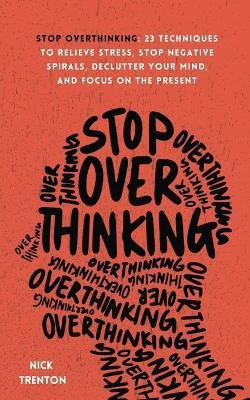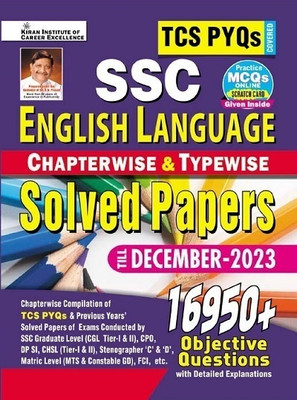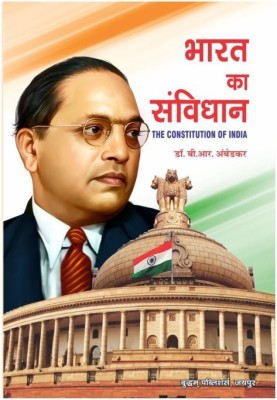
Development Economics (English, Hardcover, Ray Debraj)
Share
Development Economics (English, Hardcover, Ray Debraj)
4.2
73 Ratings & 5 Reviews₹7,179
₹11,050
35% off
Coupons for you
T&C
Available offers
T&C
T&C
Delivery
Check
Enter pincode
Delivery by20 Jun, Friday
?
if ordered before 4:59 PM
View Details
Highlights
- Language: English
- Binding: Hardcover
- Publisher: Princeton University Press
- Genre: Business & Economics
- ISBN: 9780691017068, 9780691017068
- Pages: 872
Services
- Cash on Delivery available?
Seller
Description
If you are instructor in a course that uses Development Economics and wish to have access to the end-of-chapter problems in Development Economics, please e-mail the author at debraj.ray@nyu.edu. For more information, please go to http://www.econ.nyu.edu/user/debraj. If you are a student in the course, please do not contact the author. Please request your instructor to do so. The study of development in low-income countries is attracting more attention around the world than ever before. Yet until now there has been no comprehensive text that incorporates the huge strides made in the subject over the past decade. Development Economics does precisely that in a clear, rigorous, and elegant fashion. Debraj Ray, one of the most accomplished theorists in development economics today, presents in this book a synthesis of recent and older literature in the field and raises important questions that will help to set the agenda for future research. He covers such vital subjects as theories of economic growth, economic inequality, poverty and undernutrition, population growth, trade policy, and the markets for land, labor, and credit.A common point of view underlies the treatment of these subjects: that much of the development process can be understood by studying factors that impede the efficient and equitable functioning of markets. Diverse topics such as the new growth theory, moral hazard in land contracts, information-based theories of credit markets, and the macroeconomic implications of economic inequality come under this common methodological umbrella. The book takes the position that there is no single cause for economic progress, but that a combination of factors--among them the improvement of physical and human capital, the reduction of inequality, and institutions that enable the background flow of information essential to market performance--consistently favor development. Ray supports his arguments throughout with examples from around the world. The book assumes a knowledge of only introductory economics and explains sophisticated concepts in simple, direct language, keeping the use of mathematics to a minimum. Development Economics will be the definitive textbook in this subject for years to come.It will prove useful to researchers by showing intriguing connections among a wide variety of subjects that are rarely discussed together in the same book. And it will be an important resource for policy-makers, who increasingly find themselves dealing with complex issues of growth, inequality, poverty, and social welfare.
Read More
Specifications
Book Details
| Imprint |
|
University Books Details
| Specialization |
|
Dimensions
| Height |
|
| Length |
|
| Weight |
|
Ratings & Reviews
4.2
★
73 Ratings &
5 Reviews
- 5★
- 4★
- 3★
- 2★
- 1★
- 44
- 15
- 5
- 6
- 3
5
best for development economics
useful for teachers and students. covers most of the topics in development economics.
each and every topic are discussed in detail and can be used as the best for reading in economic development.
developmental aspects of Indian economy is covered with lots of examples and interesting data are included.
READ MOREeach and every topic are discussed in detail and can be used as the best for reading in economic development.
developmental aspects of Indian economy is covered with lots of examples and interesting data are included.
martin%20kj
Jun, 2012
0
1
Report Abuse
5
Classy product
Excellent book.
READ MOREVibhor Saxena
Certified Buyer, New Delhi
Feb, 2017
3
1
Report Abuse
1
Terrible product
The book was in old condition
READ MOREJaishree sharma
Certified Buyer, Patna
Oct, 2017
0
0
Report Abuse
5
number one suggested text book
this is the very first suggested text on development economics. this book enables the overall readings of development economics. most of the universities in India recommend it as a text book. this book is also useful in research activities.
READ MOREAmitava Sen
Certified Buyer
May, 2013
0
2
Report Abuse
1
Bad experience - received used book & paid more than MRP
The book I received (Development Economics by Debraj Ray) was in used condition: text is underlined with ink pen, and the cover is visibly worn and dirty. It was not mentioned anywhere in the product description that the book is not new.
Moreover, the price of this used book (Rs 500) was higher than the MRP (Rs 425, listed on the back cover). I was charged more for the used product than a new product is supposed to cost!
READ MOREMoreover, the price of this used book (Rs 500) was higher than the MRP (Rs 425, listed on the back cover). I was charged more for the used product than a new product is supposed to cost!
Marina G
Certified Buyer, New Delhi
Feb, 2016
0
0
Report Abuse
+
All 5 reviews
Be the first to ask about this product
Safe and Secure Payments.Easy returns.100% Authentic products.
Back to top






